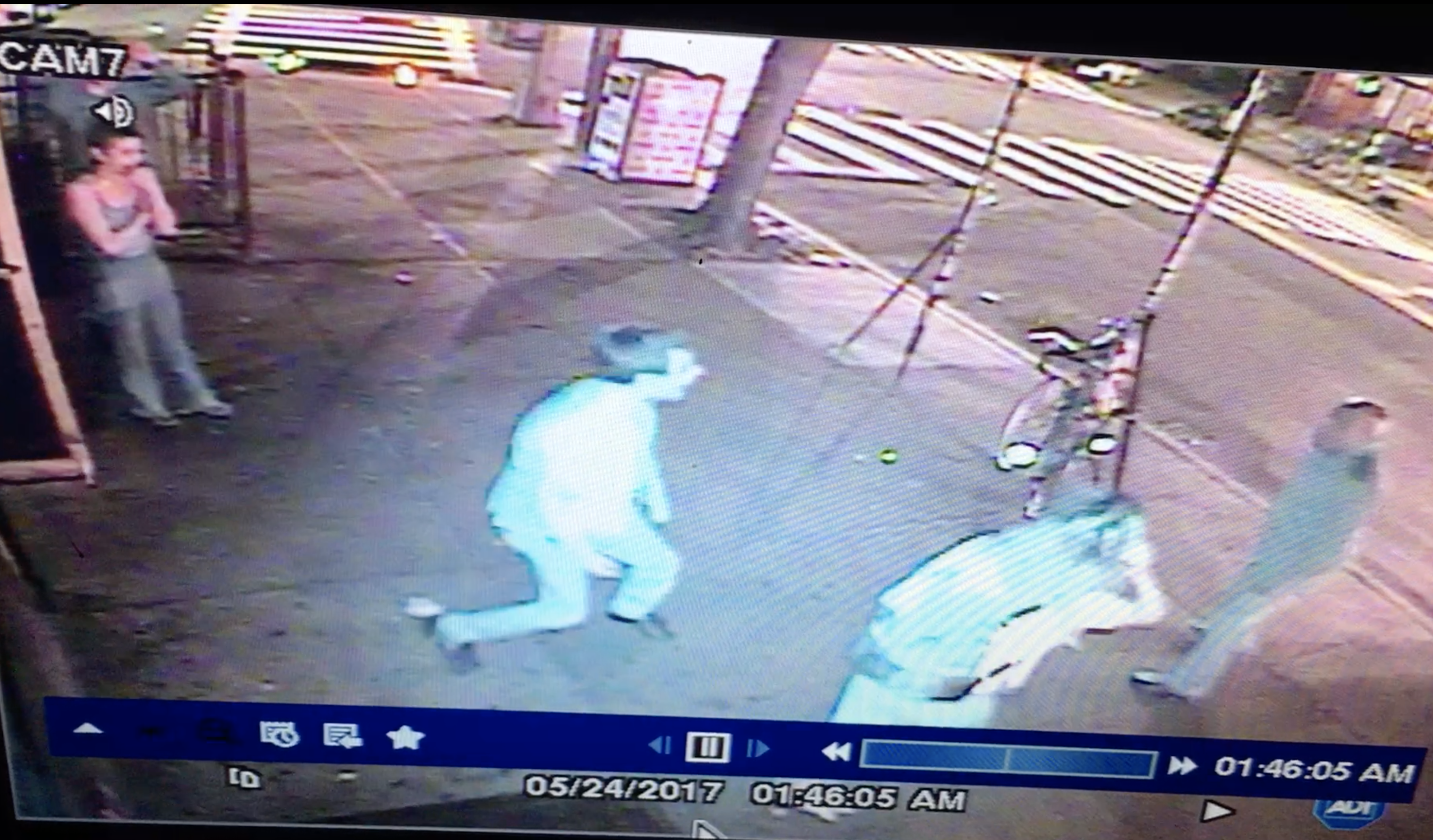Lyft Allegedly Let a Driver Give More Than 700 Rides After He Stomped on a Passenger’s Head

Credit to Author: Lauren Kaori Gurley| Date: Wed, 25 Sep 2019 22:17:24 +0000
In May 2017, a Brooklyn musician named Jonathan Pratt ordered a Lyft ride that would effectively end his career.
Around 2 AM, Pratt’s driver arrived to pick him up and allegedly yelled profanities and demanded Pratt get into the car. Pratt attempted to refuse the ride, but the driver “lifted Mr. Pratt…and slammed him headfirst on the hard ground, smashing his head so hard that he lost consciousness,” according to a new lawsuit filed by Pratt against Lyft. “The Lyft driver stomped on and kicked on Mr. Pratt’s head, hands, arms, legs and genitals,” the lawsuit continues. Part of the assault was captured on the security camera of a nearby bodega, reviewed by Motherboard.
As a result of the assault, Pratt suffered two concussions, a traumatic brain injury, and fractures to his wrist, the lawsuit says. “Prior to the assault Mr. Pratt was a renowned musician who relied heavily on wrist stamina, dexterity, memory and concentration to perform,” court documents state. “The attack has stripped him of those things.”
The lawsuit, filed in New York City on Wednesday, alleges that Pratt informed police about the assault two days after it happened, and that the police informed Lyft soon after. The lawsuit alleges that Lyft allowed Pratt’s driver to give 730 rides after the assault—and 102 rides without a valid Taxi and Limousine Commission license, in violation of New York City law. The lawsuit also claims that the driver was driving without a valid license on the day of the alleged assault.
Lyft did not immediately respond to request for comment but told Gothamist, “Safety is fundamental to Lyft. The incident described is terrifying, and the driver was permanently banned from the Lyft community.”
Pratt is at least the 27th Lyft passenger to sue the rideshare giant for assault on the platform since August 1, drawing attention to the platform's safety problems. Last week, Alison Turkos, a woman from Brooklyn, sued Lyft, alleging that her driver held her at gunpoint in 2017 while two men raped her.
Many Lyft passengers have complained that for years, the company sent dehumanizing and robotic responses to their reports of assault on the platform. “I haven’t gotten a shadow of an apology [from Lyft],” said Pratt, 40, who now lives in Ohio. “The one or two times I tried to report it, I couldn’t get a real person on the line, and pretty soon realized it wasn’t something I couldn’t handle on my own.”
Lyft increased its market share by nearly 20 percent between 2016 and 2018 in part by touting itself as a “safe” alternative to Uber, whose CEO Travis Kalanick resigned in 2017 over reports of a toxic culture at the company. In its IPO filing this spring, Lyft used the words “safety,” “safe” and “safest” 59 times.
Pratt’s case is important because it highlights how Lyft circumvented New York City laws to keep a driver on the platform. Information provided by the Taxi and Limousine Commission (TLC), the agency that regulates New York City for-hire drivers, to Pratt’s attorneys showed that the driver who assaulted Pratt had his TLC license revoked when Lyft hired him in October 2016, and was suspended at the time of the assault in May 2017. New York City law requires all Lyft and Uber drivers hold a valid TLC license—a rule which Lyft acknowledges on its website. The TLC publishes a daily online list of all for-hire drivers with valid licenses that Lyft is required to cross-check.
Among the other allegations in the lawsuit is that Lyft does not conduct background checks, but instead relies on the TLC to review drivers. Even so, Lyft’s “New York Safety Commitment” says that it “will obtain and review a criminal history report” for every new driver.
Lyft and Uber both shuttered operations in Austin in 2016, refusing to comply with a law that required fingerprint background checks for all drivers. When Texas legislators overturned the law a year later, the rideshare giants returned to the city.
In April, Lyft announced that it was rolling out continuous background checks on all drivers. The company has announced 14 new safety features so far in 2019, including mandatory sexual violence training for all drivers.
Lyft, of course, is incentivized to keep as many drivers on the road as possible to increase revenue and combat high turnover rates. “There’s a clear motivation to increase the number of drivers on the road and that increases revenue. The attrition rate is really high,” Matthew Metzger, an attorney on Pratt’s case, told Motherboard. “It’s a constant struggle for the company to have a new pool of drivers, so anywhere they can get it, they’re happy.
Pratt also alleges in the complaint that Lyft took seven months to identify his driver in response to a New York Police Department subpoena. When Lyft did respond, it only provided a telephone number and email address.
“When Lyft came out, I was a big champion,” said Pratt. “I used it exclusively for quite some time. I was hoping their response [to my assault] would be socially responsible and empathetic, but it was a traditional, cold hearted corporate response and attitude.”
This article originally appeared on VICE US.